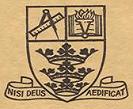
The Hotham Family
Sir John Hotham was once the Governor of Hull. When the Civil War broke out in 1642, both King and Parliament were particularly desirous of having Hull on their side. Charles deputed the Earl of Newcastle to seize Hull, but the Mayor refused him admission. Parliament then deputed Sir John Hotham, but he was not at once received; the Mayor and Corporation kept him waiting until that had discussed certain facts. Eventually he was admitted and his Governorship accepted. Soon after, the King, then at York, dispatched his son James, his nephew Rupert, and others of rank and position on a diplomatic mission to Hull. They entered the town secretly, but soon reported their presence to the Mayor and were invited to dine with Sir John Hotham on the morrow. Just before the hour fixed for dinner, news arrived that His Majesty was approaching the town and would honour the feast with his presence. This was a complication and embarrassment which Sir John met by giving instructions for the raising of the drawbridge and closing of the Beverley Gate. On reaching it, the King found himself barred from entry, and demanded that Sir John admit him, to which the Governor replied that he held the town for parliament and though a loyal subject of the king, could not disobey the orders he had received. Colonel Sir James Digby Legard tells us that when reappointed Governor of Hull, Hotham asked for definite instructions as to the admission or otherwise of the King and his followers into the town, but Parliament had not the courage to instruct him, leaving him to act on his own initiative. The reason why Hotham refused to admit him into Hull was, as he himself stated, for fear of his own life. The King at an interview with Hotham at Cholmley, near York, furious with them for presenting a petition in favour of civic freedom, had threatened to hang him if they did anything of the kind again. On this latter occasion the King had tried by a trick to make sure his entrance to Hull, and his emissaries with a substantial following were actually in the town as guests of the Governor. It came to Hotham’s ears that the King had expressed the intention of putting him to death, which he undoubtedly would have done. The royal word to the contrary bore little weight, and Hotham doubtless had in his mind the betrayal and recent execution of Wentworth.
The King had also been so ill-advised as to make an enemy of Hotham by studied neglect on his previous visit to Hull. Hotham had been Governor for eleven years; he was, moreover, the most important magnate in the district. Hotham’s sympathies were entirely in favour of a monarchial form of government, under proper limitations. With decent treatment, and any assurance that Charles would govern in the future as constitutional monarch, he could always have won him over to the royal party. He desired accommodation between Charles and his Parliament, and may have felt, as Cholmley did, that he would be a more powerful arbitrator as Governor of Hull and guardian of the munitions of war with his sword in his hand than as a mere voter in Parliament.
Allegiance implies the existence of law - where no law is there can be no breaking of allegiance. There was then, as it is now, the centre, the emblem and some of authority, and although that authority could not then, any more than now, be legally erased without the consent of Parliament it is easy to realise that accommodation from the Crown, which had conditioned authority to issue it, would carry more weight than one from Parliament which had no such authority, conditioned or otherwise. These points should be considered when weighing up conduct of such men as Sir Hugh Cholmley and Sir John Hotham. The two men are typical of many others whose names have been associated with an amount of obloquy passed upon them by prejudiced writers which is entirely undeserved.
This puts quite another and, for my part, I think correct interpretation upon the Governor of Hull. It may be argued the author quoted was himself prejudicial in favour of his ancestors, but his arguments too are sound logic, and logic is the antithesis of prejudice. The whole story is a sordid and inglorious one from every angle and despite all charitable endeavour to understand aright the temper, motives and conduct of those who took part in it. The siege of Hull culminated in Sir John Hotham and his son being beheaded on Tower Hill, London on 2nd January 1645 after having been prisoners for eighteen months.
In the church sleep some of the Hothams - a family which has given us famous soldiers and sailors. Sir john Hotham, 1st Baronet, was made Governor of Hull in 1642, and three years later both he and his son John were executed for their treachery to Parliament. William, 1st Baron, served under Richard Howe at the relief of Gibraltar, and under Lord Hood ten years later. At the same time his nephew, another William, and another admiral was serving with Nelson.
It is the 3rd Baron of Dalton Holme whom one has most causes to remember. He fought at Salamanca and Waterloo, and gave the village the church we see ten years before they laid him in it in 1870. There is a black and white marble monument of Sir John Hotham of 1689 - once in the old church and said to have come from Italy - a knight in rich armour, with helmet and gauntlet beside him. Sir John reclines on a slab supported by life size kneeling figures representing the four virtues; truth, holding a mirror; Strength, holding a broken column; Justice with a sword; and Temperance, with her water pitchers.
The Strickland Family
The Strickland family had its origin at Marske, in the North Riding, and a Sir Thomas de Strickland bore the banner of St. George at the Battle of Agincourt.
William Strickland, who purchased the manor at Boynton in 1549, sailed, when a youth, to the New World with Sebastian Cabot and helped to discover Labrador and Newfoundland. He is said to have introduced the turkey into our country, a deed commemorated in the family crest. Hid descendant was created a baronet by King Charles 1, and the present Sir Walter William Strickland, of Boynton Hall, is the ninth holder of the title.
Readers of Tom Brown’s Schooldays will remember the hero’s friend, Martin, in the historic fight with Slogger Williams. The madman was his name among his fellow schoolboys, but it was as Sir Charles Strickland that he was known in the neighbourhood of Boynton. Hugh Edwin Strickland was born at Reighton in 1811 and was a notable student of Natural History and became a Reader in Geology at Oxford University. He was accidently killed by a train in a railway tunnel. Sir William Strickland was the 1st Baronet (1596 - 1673), politician, elder brother of Walter Strickland, knighted 1630, created Baronet 1641, vigorously supported the Parliamentary cause as M.P. Hedon and Yorkshire 1654, 1659. In 1811 Captain Strickland and his men (in the siege of Hull) were not discovered till they began to scale the fort because they were spies trying to get to the fort without the enemy knowing, but when they were found out and were fired upon, Captain Strickland was killed.
Sir Walter Strickland was an ardent Roundhead chosen by the Long Parliament to go to Holland to complain of the help given to Henrietta Maria. He sat in several of Cromwell’s Parliaments and escaped death by the skin of his teeth at The Hague, where he was trying to bring about an alliance between England and Holland. It is surprising that this old enemy of the Stuarts should have received a pardon at the Restoration, living in peace until his death eleven years after, and it is thrilling to know that his actual pardon has been discovered in the church safe at Flamborough in our own time as recently as 1936. He sleeps in that church.
FAIR COMMENT?
It was a great surprise to me when I passed my eleven plus - (And to your teachers)
At my other school there was only one teacher and the lessons were very boring ….. (A rather hoggish remark)
This year I have had three different History and Geography Masters (All three have since left teaching)
I glanced into the Chemistry lab. And saw several weird articles. (It is supposed that there was a class present at the time)
Other strange subjects such as French, Physics and Religious Knowledge (Missionaries needed in this fair land?)
We also had to learn French and at first it seemed very hard, but now it is quite easy (Monsieur Perry - congratulations mon brave!)
We have already had three different History teachers - Mr. Symes, Mr. Healey was the second, and now Mr. Hudson who is still teaching. (Judging by the above record it is difficult to see how long Mr. Hudson will last)
In my other school the teachers were half men and half women. (The Greeks had a word for it)
The school itself is a wonderful place even though it is falling down, but I think it will last another hundred years. (One of the runins that Cromwell knocked about a bit)
Another reason I like this school better than my other one is because there is a tuck shop. (Cupboard love?)
SIR CHRISTOPHER WREN TECHNICAL HIGH SCHOOL
